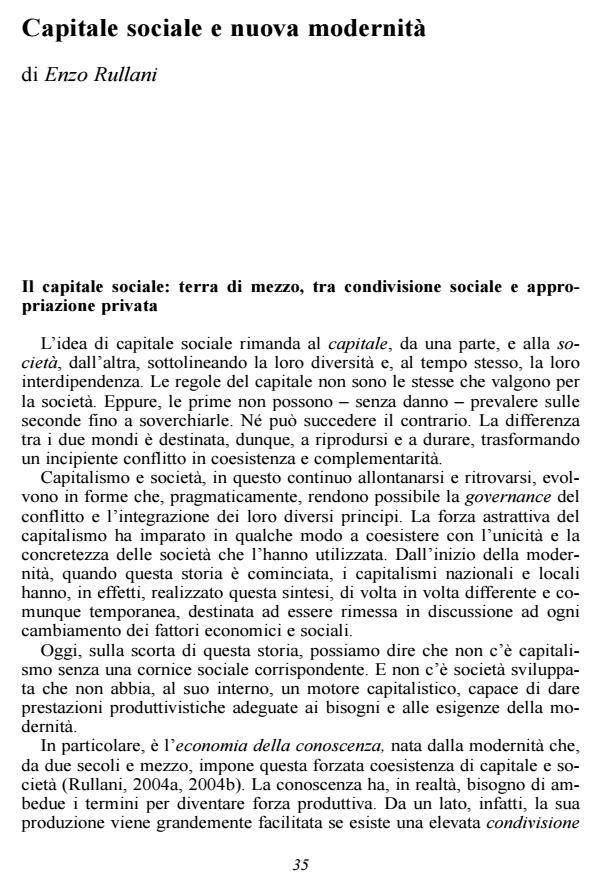Capitale sociale e nuova modernità
Journal title SOCIOLOGIA DEL LAVORO
Author/s Enzo Rullani
Publishing Year 2006 Issue 2006/102
Language Italian Pages 30 P. File size 86 KB
DOI
DOI is like a bar code for intellectual property: to have more infomation
click here
Below, you can see the article first page
If you want to buy this article in PDF format, you can do it, following the instructions to buy download credits

FrancoAngeli is member of Publishers International Linking Association, Inc (PILA), a not-for-profit association which run the CrossRef service enabling links to and from online scholarly content.
The idea of social capital contains two opposite terms: (private) capital and (public) society. This duality is condemned to remain unsolved in the modern society. In fact, modernity uses knowledge as a productive force, and knowledge needs both these two sides: cognitive property (private rents and investments), on one hand; and social sharing (open access, cognitive reserves), on the other. Hence, social capital is a necessary feature of modern economy. We have utilized social capital in the last 30 year to overcome the crisis of fordist production. Small firms and industrial districts, in Italy, made a deep use of the social capital produced by history and tradition, and embedded in local systems. But today we are facing another problem: how to produce the new social capital that is needed for a post-fordist social organization of production. We are looking for a new form of modernity, suitable for a more complex world. And the social capital, that is to be produced in the future, ought to be designed to fit this more complex economy and society.
Enzo Rullani, Capitale sociale e nuova modernità in "SOCIOLOGIA DEL LAVORO " 102/2006, pp , DOI: